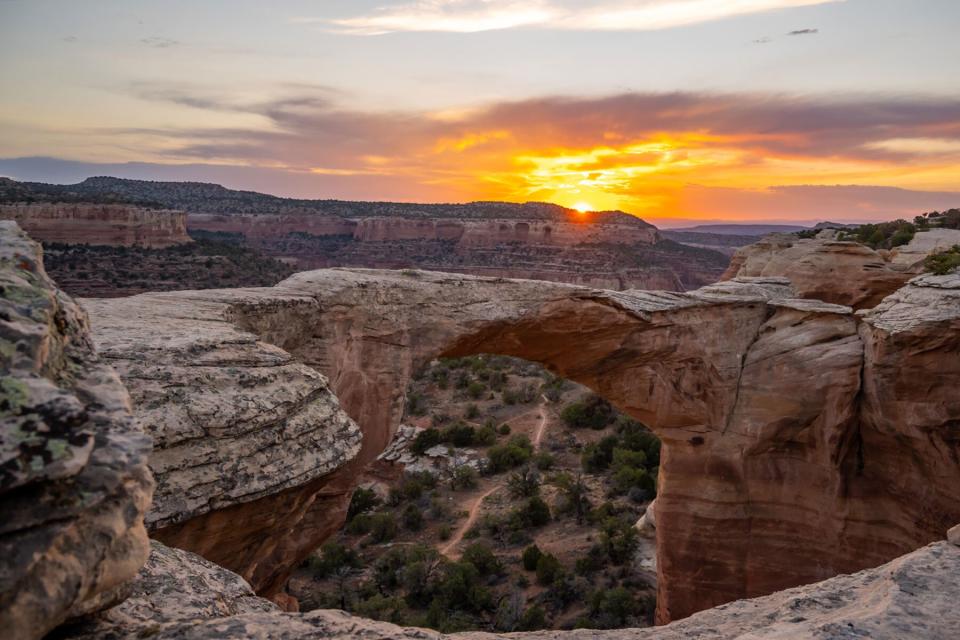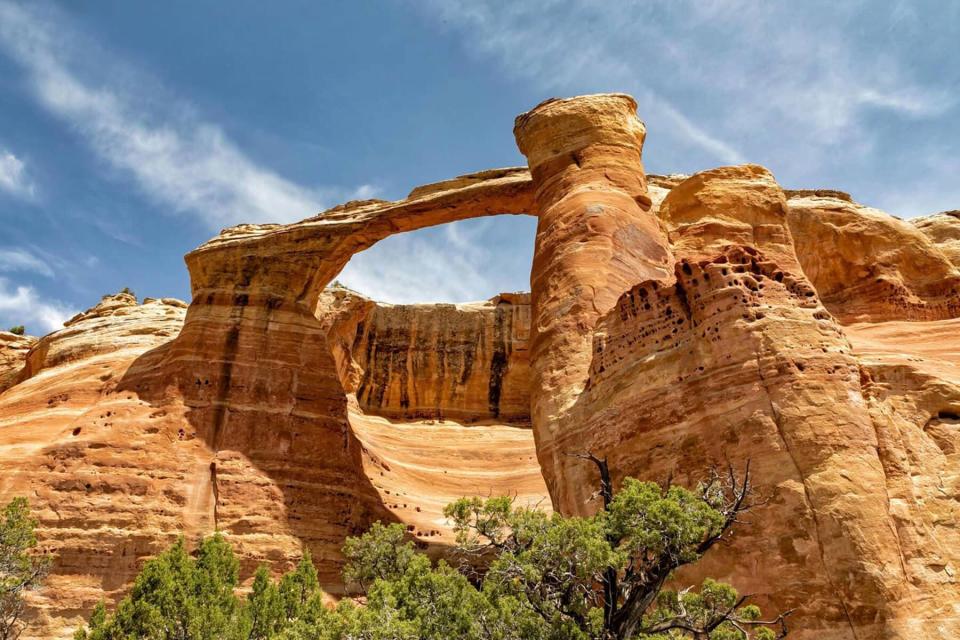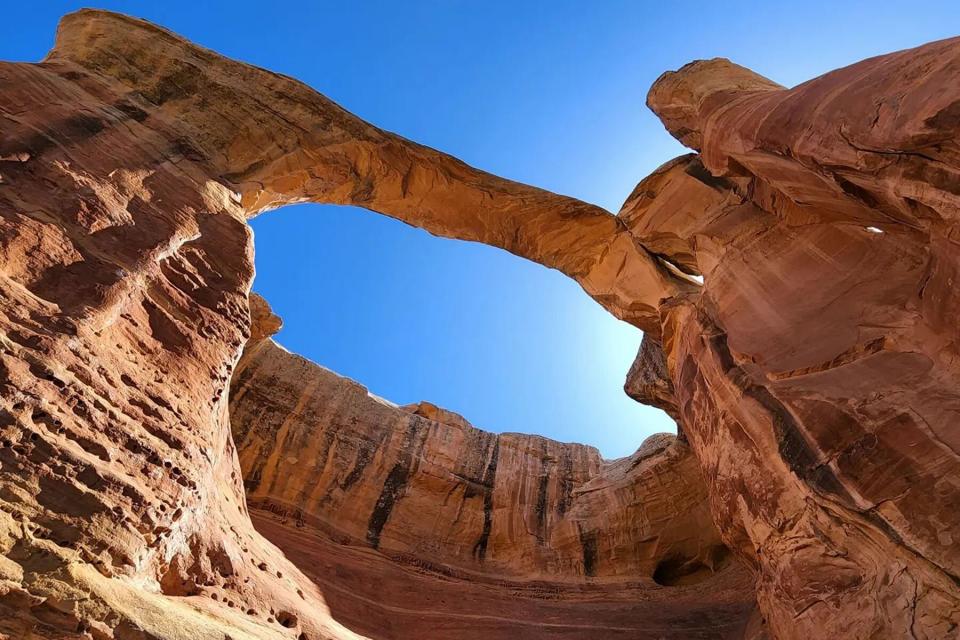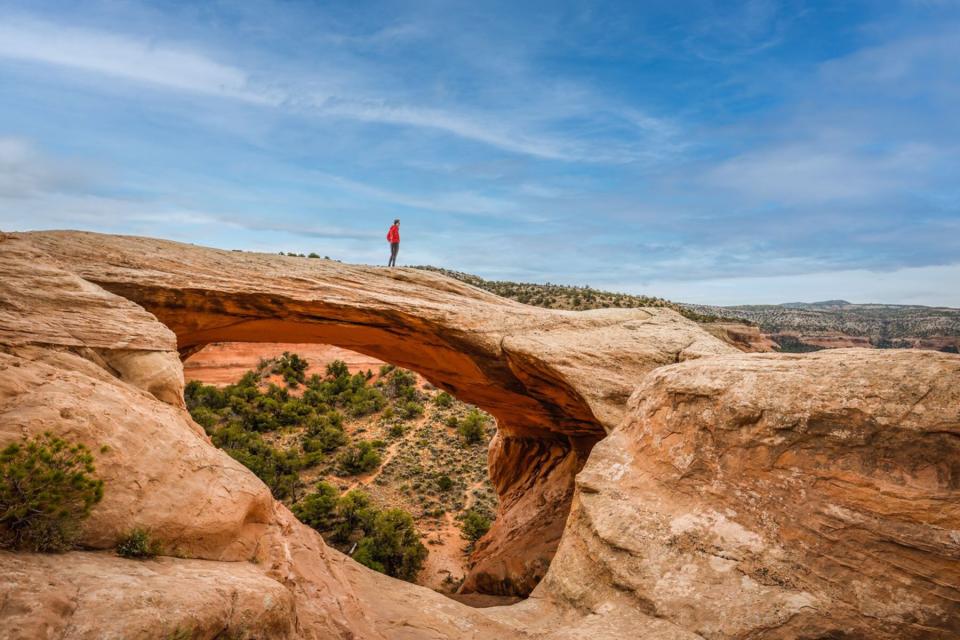This Stunning Colorado Park Has One of the World's Largest Collections of Natural Arches — and You've Probably Never Heard Of It
Standing beneath the magnificent rock formations at Utah's Arches National Park is one of the most awe-inspiring moments you can have in nature. Unfortunately, 1.5 million other people each year think so, too. But only 100 miles away is a natural area with gorgeous arches that you might just have all to yourself.

Courtesy of Visit Grand Junction
Colorado's Rattlesnake Canyon is the Southwest's lesser-known answer to Arches. The scenic area has 35 natural arches (including eight major arches), making it the second-largest collection of natural arches in the world (after the national park). But you won't find hordes of tourists on the trails here.

Courtesy of Visit Grand Junction
The canyon is part of Colorado's McInnis Canyons National Conservation Area, which takes up 123,400 acres of rugged, protected land near the city of Grand Junction. Although it's free to visit Rattlesnake Canyon, the area remains a bit of a secret, because it's a (literal) trek to reach it.
The canyon is accessible only via a challenging, 13-mile drive or a 15-mile, round-trip hike. If you're driving, park officials recommend a high-clearance 4x4 vehicle. Because the terrain is so rugged, standard SUVs won't be able to clear the last few miles of the trail, which are extremely rocky. Drivers will take Black Ridge Access Road to the upper trailhead, which then offers visitors a much shorter hike to the top of the canyon.

Courtesy of Visit Grand Junction

Courtesy of Visit Grand Junction
Even if you have a hardy vehicle, you might want to consider opting for the hike, which brings visitors to some of Colorado's most remote and jaw-dropping landscapes.
Once you reach the canyon, you'll be greeted by the sight of fantastic arches soaring over ancient cliffs. The largest arch in the park is Cedar Tree Arch, which spans 76 feet and boasts a vertical opening of 43 feet. There's also Centennial Arch (otherwise known as East Rim Arch or Rattlesnake Arch), known for its exceptionally thin arch.
Finally, while many Southwestern national parks do not allow dogs, hikers can feel free to bring their four-legged friends along on the hike (or drive) to Rattlesnake Canyon, as long as they're on a leash.
Cailey Rizzo is a contributing writer for Travel + Leisure, currently based in Brooklyn. You can find her on Twitter, Instagram, or at caileyrizzo.com.

